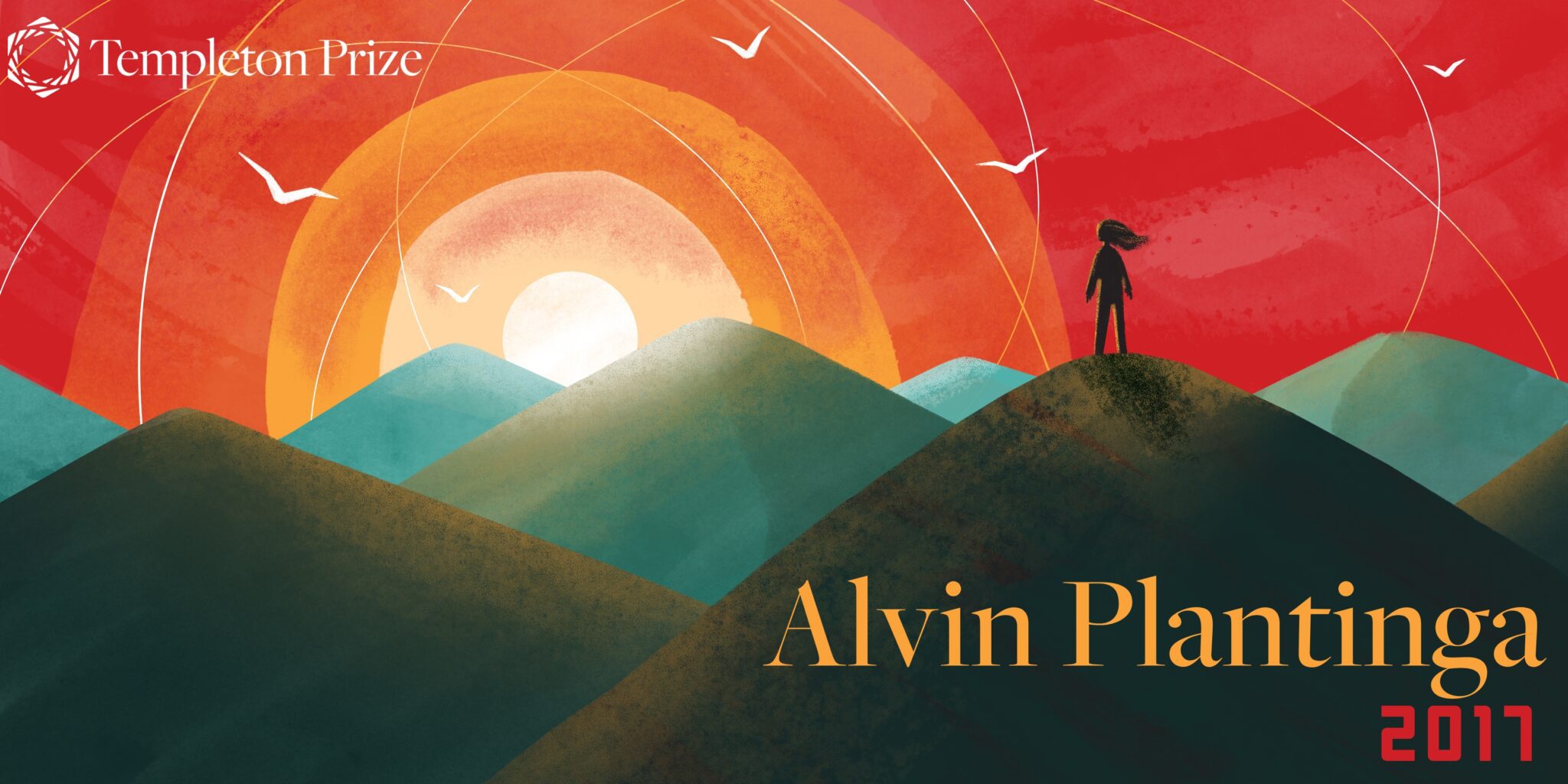In 1973, the first Templeton Prize was given to Mother Teresa. In 2023, we celebrate the 50th anniversary of this award. Over the next 52 weeks, we will highlight each of our laureates and reflect on their impact on the world. From humanitarians and saints to philosophers, theoretical physicists, and one king, the Templeton Prize has honored extraordinary people. Together, they have pushed the boundaries of our understanding of the deepest questions of the universe and humankind’s place and purpose within it, making this (we humbly think) the world’s most interesting prize.
In his more than 50-year career as a philosopher, Alvin Plantinga has revived and reinvigorated the use of religious perspectives in academic philosophy, influencing three generations of scholars and leaving a lasting impact on the course of philosophical exploration.
In the late 1950s, when he began his career, Plantinga encountered an academy that generally rejected religiously-informed philosophy. In his early books, however, Plantinga considered a variety of arguments for the existence of God in ways that put theistic belief back on the philosophical agenda.
It was for this work and the decades of achievements that followed, which brought theism once again into relevant scholarly debate that Plantinga received the 2017 Templeton Prize.
Born November 15, 1932, in Ann Arbor, Michigan, Plantinga received in his PhD from Yale University in 1958.
An early landmark in Plantinga’s career was his “free will defense” against the so-called “argument from evil,” the most widely cited argument against theistic belief, which posits that the existence of both God and evil are logically incompatible. Plantinga counters that in a world with free creatures, God cannot determine their behavior, so even an omnipotent God might not be able to create a world where all creatures will always freely choose to do good.
Plantinga further stoked controversy with his 1984 article, “Reason and Belief in God,” which disputes the “Classical Foundationalist account of knowledge” according to which beliefs are justified if and only if they can be justified by a chain of reasoning terminating in various types of self-evident beliefs. Plantinga contends that the set of foundational beliefs, what he calls “properly basic beliefs,” are much broader and include belief in the existence of God.
As his international reputation grew in the 1980s, Plantinga became increasingly sought out for international speaking engagements. He has given more than 250 public lectures, including more than 30 named lectureships, throughout the United States and Europe as well as in China, Iran, Israel, and Russia.
Today, more than 50 years after Plantinga’s remarkable journey began, university philosophy departments around the world now include thousands of professors who bring their religious commitments to bear on their work, including Buddhist, Jewish, and Muslim philosophers.
Upon receiving the Templeton Prize, Plantinga said he was “honored” to receive it and stated that “the field of philosophy has transformed over the course of my career. If my work played a role in this transformation, I would be very pleased. I hope the news of the Prize will encourage young philosophers, especially those who bring Christian and theistic perspectives to bear on their work, towards greater creativity, integrity, and boldness.”
He received the Templeton Prize at a ceremony on September 24, 2017 at the Field Museum in Chicago, Illinois.
My argument, very simply, is that if theism is true – if there really is such a person as God, then in all likelihood God would make his presence known to us human beings. If theism is true, God is a God of love and concern: in fact his most essential property is that of loving. But the most important thing for us human beings to know is that there is indeed such a person as God; hence in all likelihood God would make his presence known to human beings.
–Alvin Plantinga
